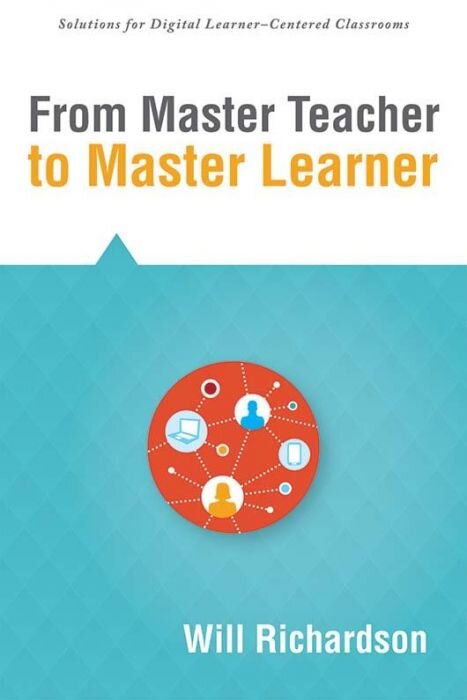Free Content. Subscription Services. Customized Workshops.
To view a distillation click on the book cover or Read More link below the excerpt. Not sure how to use the distillations to improve your practice, learn more about them on our Distillations Explained page.
To find another book, return to the Book Search page.
Learn or Die
In the dramatically titled Learn or Die, Edward Hess uses research and models to nudge our thinking on two topics: how we learn and how we can build organizations where learning is at the center of all we do. If you like analyzing topics such as self-efficacy, System 1 and System 2 thinking, and positive psychology’s impact on learning then Learn or Die will scratch those intellectual itches and more.
Seven Myths about Education
Do you ever feel like while training to teach you learned concepts that sounded great, but when put into practice in the classroom did not seem to be effective? In her book, Seven Myths About Education, Daisy Chrisodoulou dispels seven myths she was repeatedly taught when she was training to be a teacher. After much research, Christodoulou wrote this book to demonstrate what modern science tells us we need to change about the education system.
Rookie Smarts
Wondering what the value of hiring young teachers and administrators might be? Looking to give a shot to someone switching careers? In Rookie Smarts, Liz Wisman will take you through all of the variables of giving those with a fresh perspective the chance to do new work. This book will change the way you hire, promote, and evaluate… three critical components to all leadership positions.
Leaders Eat Last
After covering the chemicals in our bodies that drive us, Simon Sinek spends the last three-fourths of Leaders Eat Last explaining what great leadership looks like. Using examples from the Marines, Costco, GE and many others, he convinces the reader that giving of yourself is the most important trait a leader can have. Avoiding “destructive abundance” and focusing on treating others well is a core message in this book, and a valuable reminder to us all.
Emotional Agility
Have you ever caught yourself ruminating about “What ifs…?” Or have you been paralyzed by fear, unable to make decisions? In Emotional Agility, Susan David provides a guidebook grounded in psychological research to help us embrace all of our emotions, even the most uncomfortable ones, discover our “why”, and align our lives with our values.
Distracted
In his book Distracted, James Lang explains that “the human brain is an eminently distractible organ. We thus are fighting a losing battle if we try to solve the problems of attention by eliminating distraction. Banning devices from the room still leaves pencils for doodling, windows to stare through, coughing and sniffing humans to irritate us, and the endless chaotic swirling of our thoughts. Instead, we need to think about how the learning environments that we build for students can be safe and supportive spaces.
The Power of Moments
In The Power of Moments, the Heath brothers piece together research, personal anecdotes, history, and psychology to clarify something that affects us all… moments in our lives. They clarify the conditions that increase the chances they are memorable, like creating “peak moments”(eg. college acceptance communication), “leveling up” your pride (e.g. Boy Scout levels), and connections (e.g. team-building exercises) all enhance the moments of our lives
How Children Succeed
What if the educational emphasis on cognition and ability was all a mistake? What if we focused on developing persistence, self-control, and curiosity instead of cognitive skills? In How Children Succeed, Paul Tough argues that teaching soft skills might be more important than the traditional educational curriculum.
How to Raise an Adult
How to Raise an Adult, by Julie Lythcott-Haims, is in many ways a meta-analysis of the dozens of books she references and curated over the course of her 14 years as a Dean of Freshman at Stanford University. A great read for any parent or parent-to-be who wants to reflect on how they were raised and improve on that standard for the next generation.
Drive
If you are interested in motivation for yourself, your students, or those you lead, you will find plenty of ideas and research in Drive. Daniel Pink sandwiches mastery, autonomy, and purpose in between his call for new methods of motivating and toolkits to do so. A masterful combination of history, research, and theory will be a joy for anyone interested in motivating themselves or others.
Permission to Feel
In Permission to Feel, we learn that some of the most important aspects of learning - attention, focus, and memory - are all controlled by our emotions, not by cognition. Marc Brackett helps us understand what emotions are, how to label them, and the information emotions communicate, potentially transforming how administrators and teachers lead and how students learn.
From Master Teacher to Master Learner
Will Richardson makes it clear from the get-go in From Master Teacher to Master Learner that the model teacher needs to now be a learner first and foremost. He reinforces the idea that our students no longer need teachers who have encyclopedic knowledge, but rather those who can model learning and guide students through what learning should look like in the digital age.
Timeless Learning
Socol, Moran, and Ratliff’s book Timeless Learning; How Imagination, Observation and Zero-Based Thinking Change Schools takes a look at outdated American public schools and how they are currently failing students. School leaders and educators wishing to create change will appreciate this book for inspiration and for ideas on how and where to start.
The Element
Are your students discovering their talents and pursuing their passions? In The Element, Sir Ken Robinson explains why and how all humans should tap into their aptitudes and interests in order to find more fulfillment in life and prepare for the complex problems facing our ever-changing world.














